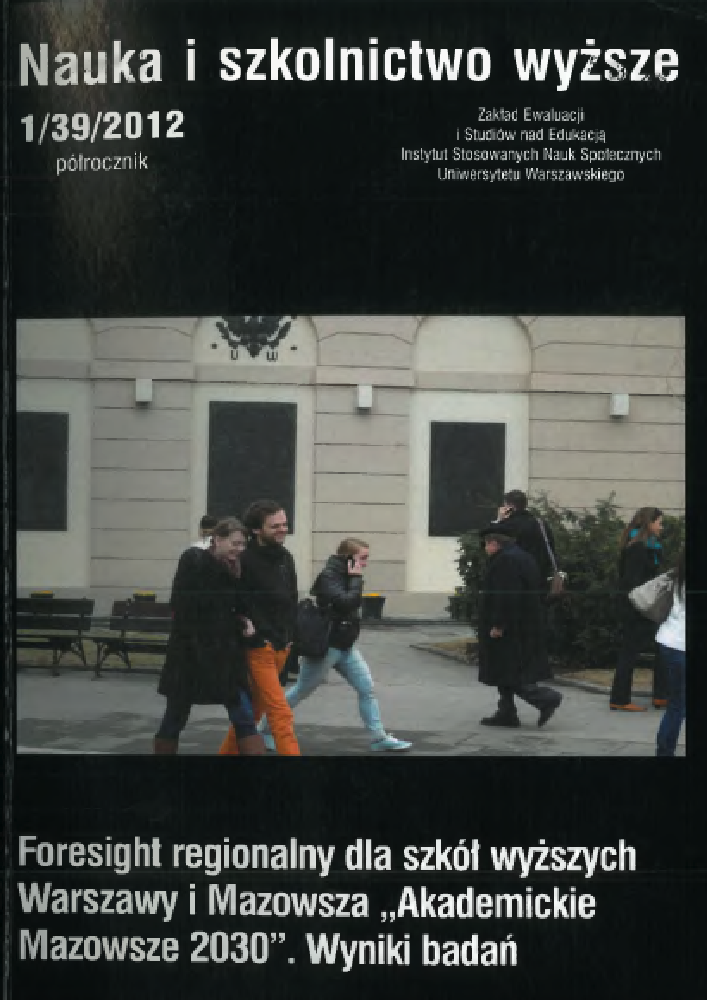Abstract
The concept of economy based on knowledge (EBK) is pointing to a direct connection of knowledge and its operational dimension in the form of practical Solutions, with the innovation of the economy, but first of all with the competitiveness of economic sectors. EBK is integrated with a few lines of micro- and macroeconomic enquiries: so-called new theories of rise, including the two-sector model of Romer, the examination of the kinds of forms of the new labour organization, the diagnosis of the role of learning and systematic innovation inside companies etc. The main problem is the possibility of measuring EBK, and the simplest seems to be the creation of a fourth economic sector - economy based on knowledge and measuring its share in the GDR Since a crucial stage of EBK creating is a mutual transfer of knowledge and technology from educational and research institutions to enterprises and, vice-versa, the transmission of knowledge, and also financial resources, from enterprises to the B+R sector, one should recognize that cooperation indicators are strategic for analyses. Amongst recognizable forms of cooperation of the college with market subjects, the ones most often mentioned are spin-off, Centres of Advanced Technology and Platforms of Development of Knowledge. The assessment of the cooperation of business entities with higher education institutions in Masovia comes out disadvantageously in the B+R field of activity. Moreover the majority of entrepreneurs negatively assessed the possibility of establishing a future cooperation. Entrepreneurs also assessed negatively the offers of higher education institutions, giving particular attention to the cost of provided and the Iow functional advantage of the offer. To the collection of actions which would have a deciding influence on EBK, one should add developing by higher education institutions of Masovia of a strategy and action plans concerning a cooperation in research and teaching with economic practice, intensification of promotional actions in colleges, establishment of professional organizational units responsible for the cooperation with the business sphere, and legislative changes in the scope of the intellectual property, this comprising regulations concerning the explicit division of benefits connected with its commercialization.
References
Bąk M., Kulawczuk R (red.) 2009 praktyczna użyteczność badań naukowych i prac badawczo-rozwojowych. Projektowanie jprowadzenie badań naukowych we współpracy z gospodarką, Instytut Badań nad Demokracją i Przedsiębiorstwem Prywatnym, KFKR Warszawa.
Bell D. 1973 The Corning of Post-lndustrial Society, Basic Books, New York.
BDL GUS 2007 Działalność innowacyjna przedsiębiorstw w latach 2004-2006, Bank Danych Lokalnych Głównego Urzędu Statystycznego, Warszawa.
BDLGUS 2011 Działalność badawczo-rozwojowa 2010, Bank Danych Lokalnych Głównego Urzędu Statystycznego, Warszawa.
Emerling A., Orlińska A., Węsierska S. 2010 Współpraca firm z sektorem edukacji. Raport z badania, Warszawa.
Gabryś A. (red.) 2008 Najlepsze praktyki w zakresie współpracy ośrodków naukowych i biznesu przy wykorzystaniu środków z UE, Fundacja Aurea Mediocritas, Warszawa.
Gardawski J., Gilejko L., Siewierski J., Towalski R. 2011 Socjologia gospodarki, Szkoła Główna Handlowa, Warszawa.
IBRD 1999 Knowledge fordevelopment, World Development Report 1998/99, World Bank, Washington.
Kochan T.A., Barley S.R. (red.) 1999 The Changing Naturę of Work and Its Implications for Occupational Anałysis, National Research Council, Washington.
Kukliński A. 2003 The Development of Knowledge Based Economy in Europę: The Regional Trajectory, referat, University College, London.
Machlup F. 1962 The Production and Distribution of Knowledge in the United States, Princeton University Press, Princeton, New Jersey.
Nonaka I., Takeuchi H 1995 The Knowledge Creating Company, Oxford University Press, New York.
Noyelle T. (red.) 1990 Skills, Wages, and Productwity in the Service Sector, Westview Press, Boulder.
OECD 1996 The Knowledge-based Economy, Organisation for Economic Cooperation and Development, Paris.
OECD 2001 Korea and the Knowledge-based Economy. Making the transition, Organisation for Economic Cooperation and Development, World Bank Institute, Paris.
Piech K. 2001 Perspektywy polityki gospodarczej w dobie nowej gospodarki, w: J. Kaja (red. nauk.)' Wpływ otoczenia na zarządzanie i finansowanie przedsiębiorstw, cz. 2: Przedsiębiorstwo wobec wyzwań przyszłości, Szkoła Główna Handlowa, Warszawa, s. 17-28.
Piech K. 2001 Gospodarka oparta na wiedzy w Polsce, Szkoła Główna Handlowa, Warszawa (akson.sgh.waw.pl/~kpiech/text/2003-kzif-augustow.pdf).
Powell W., Snellman K. 2004 The Knowledge Economy, „Annual Review Sociology”, nr 30, s. 199-220.
Poznańska K., Zarzecki M., Matuszewski R, Rudowski A. 2012 Diagnoza współpracy między szkolnictwem wyższym i sferą gospodarczą, w tym ekspertyza nt. innowacyjnych przedsiębiorstw na Mazowszu, Politechnika Warszawska, Warszawa
PNSRR 2005 Projekt Narodowej Strategii Rozwoju Regionalnego na lata 2007-2013, Ministerstwo Gospodarki i Pracy, Warszawa.
Puchalska K., Zarzecki M., Zych M. 2010 Badania i ekspertyzy w sektorze maiych i średnich przedsiębiorstw oraz w obszarze B+R w województwie łódzkim, Łódź.
Rudnicki S. 2011 Nowe perspektywy. Nauki społeczne dla gospodarki, Wyższa Szkoła Europejska im. ks. Józefa Tischnera, Kraków.
Santarek K. (red.) 2008 Transfer technologii z uczelni do biznesu. Tworzenie mechanizmów transferu technologii, Polska Agencja Rozwoju Przedsiębiorczości, Warszawa.
Solow R. 1957 Technical change and the aggregate production function, „Review of Economic and Statistic”, nr 39, s. 312-320.
